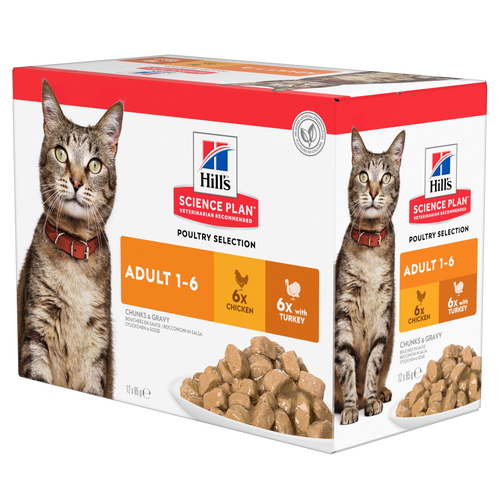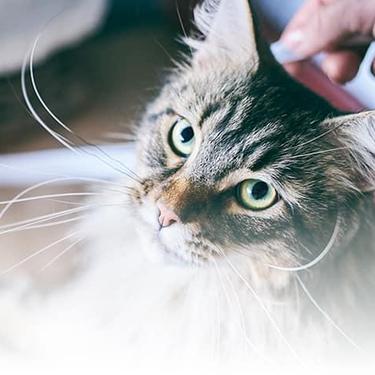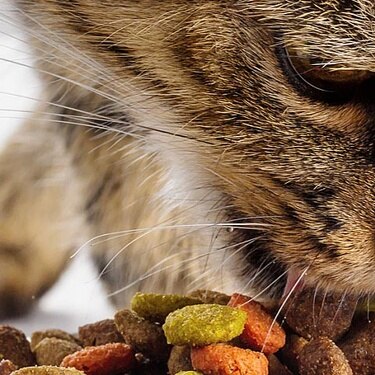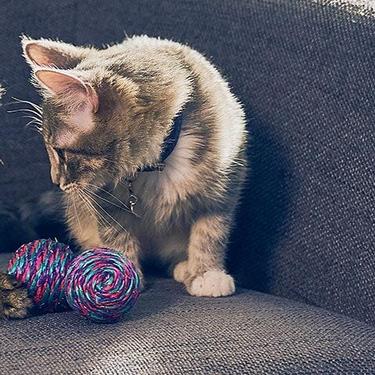
-
Find the right food for your petTake this quiz to see which food may be the best for your furry friend.Find the right food for your petTake this quiz to see which food may be the best for your furry friend.Featured products
 Puppy Food
Puppy FoodHill's Science Plan Puppy Multipack Wet Dog Food with Chicken & Beef are complete premium pet foods for growing puppies from weaning until 1 year old and for pregnant and nursing dogs. Your puppy will love these deliciously smooth and savoury minced loaves, formulated for balanced nutrition and overall health.
Shop Now Mature Adult Dog Food
Mature Adult Dog FoodHill's Science Plan Mature Adult Multipack Wet Dog Food with Chicken & Beef are complete premium pet foods for mature adult dogs from 7 years. Your dog will love these deliciously smooth and savoury minced loaves, formulated to deliver the appropriate amount of energy to support the needs of adult dogs.
Shop Now Adult Wet Dog Food with Beef
Adult Wet Dog Food with BeefHill's Science Plan Adult Multipack Wet Dog Food with Chicken, Beef & Turkey are complete premium pet foods for adult dogs from 1 year. Your dog will love these deliciously smooth and savoury minced loaves, formulated for balanced nutrition and overall health.
Shop NowFeatured products Light Adult Multipack Wet Cat Food with Chicken & Ocean Fish
Light Adult Multipack Wet Cat Food with Chicken & Ocean FishTender chicken chunks in gravy for cats, with L-carnitine and fewer calories for ideal weight management. Packed with high-quality protein, omega-6s, and vitamin E for shiny fur and healthy skin.
Shop Now Adult Multipack Wet Cat Food with Beef, Ocean Fish & Chicken
Adult Multipack Wet Cat Food with Beef, Ocean Fish & ChickenTender chunks in gravy for cats, with high-quality protein to maintain lean muscle. With vitamin E and omega-3s & -6s for healthy skin and balanced minerals to support healthy vital organs.
Shop Now Mature Adult Wet Cat Food with Chicken
Mature Adult Wet Cat Food with Chicken
Tender chicken chunks in gravy for mature adult cats. Made with easy-to-digest ingredients, high-quality protein for lean muscle maintenance and antioxidant vitamins C+E for optimal health.
Shop Now -
Dog
- Dog Tips & Articles
-
Health Category
- Weight
- Food & Environmental Sensitivities
- Urinary
- Digestive
- Joint
- Kidney
-
Life Stage
- Puppy Nutrition
- Adult Nutrition
- Senior Nutrition
Cat- Cat Tips & Articles
-
Health Category
- Weight
- Skin & Food Sensitivities
- Urinary
- Digestive
- Kidney
-
Life Stage
- Kitten Nutrition
- Adult Nutrition
Featured articles Show some love with wet foods: a great choice for pets with health issues
Show some love with wet foods: a great choice for pets with health issuesShow some love with wet foods: a great choice for pets with health issues.
Read More The Incredible Science Behind Your Pet's Microbiome
The Incredible Science Behind Your Pet's MicrobiomeLearn what your pet's microbiome is, how it contributes to your pet's gut and overall health, and why nutrition is important in maintaining healthy microbiomes.
Read More The Right Diet For Your Pet
The Right Diet For Your PetIn people, the right diet is very important. If you are eating the wrong way for your metabolism, activity level, age and lifestyle you could end up with health issues.
Read More -


You may have noticed that the term ‘gut microbiome’ seems to be a bit of a buzzword at the moment. The fact is that it deserves all the hype because the gut microbiome is incredibly important for humans and cats alike. The power of this huge ecosystem has been known for some time, but it’s only now that we are starting to understand the true makeup, and there’s probably plenty more to come. For now, we know that the gut microbiome can have a really profound effect on health. Of course, if something goes wrong we would expect to see digestive upsets like soft cat poo or bouts of diarrhoea, but the truth is that the gut microbiome is much more powerful than this.
What is the gut microbiome?
The microbiome is defined as “the combined genetic material of the microorganisms in a particular environment.” In the case of the gut microbiome, these are the millions of tiny organisms that live in your cat’s intestines. They’re mainly bacteria, but there are also things like protozoa and other weird and wonderful things. Other parts of the body have microbiomes too, such as the skin and mouth, which are also covered in bacteria and other organisms. But the gut microbiome is the real star.
Different foods feed different types of organisms, so diet has a big part to play in the makeup of the cat microbiome. And because cats have to have meat in their diet, their microbiome tends to be different than those of dogs and people.


Tasty Tips
Why is the cat gut microbiome so important?
Many of the bacteria and other organisms in the microbiome, and especially the combination of the many different types, are really great for your cat. Here are some of the important jobs they do:
They break down some foods that your cat’s body can’t.
They nourish gut cells and keep the lining of the gut healthy and strong.
They keep the ‘bad’ bacteria at bay.
They support the immune system and keep it healthy.
They help with the production of certain vitamins.
A balanced microbiome can even help keep your cat slim. And there is a strong link between the gut and the brain, so a healthy gut microbiome helps keep your cat happy and healthy upstairs, too!
Like many things, we only notice how brilliant something is when it goes wrong! In the case of the gut microbiome, this is called dysbiosis, or an imbalance between all those different types of bacteria. Organisms that are harmless in smaller numbers are normally kept in check by “healthy” bacteria, but if they start to win the fight for control, the perfectly balanced ecosystem starts to go wrong. This might be caused by things like a change in diet, use of antibiotics, or chronic stress.
As you can imagine, when dysbiosis occurs, your cat will lose all the great benefits of a healthy microbiome. This can result in vitamin deficiency, gut damage and inflammation, infections, adverse food reactions, and a weakened immune system. Your cat may not digest their food properly, so they might also lose weight.
What can you do to keep your cat’s microbiome balanced?
Now you understand the benefits of your cat’s gut microbiome and the important role diet plays, talk to your vet about a microbiome-friendly cat food. This will support their microbiome and give it all the nutrients it needs to maximise those benefits.
Try not to use antibiotics unless it’s essential. We live in a world where resistance to antibiotics is a real danger. We know they can devastate the good bacteria, so try to listen to your vet and avoid antibiotics if you can.
Talk to your vet about your cat’s home life. Cats are subtle creatures, prone to stress, especially around other cats. It may be that you can make some simple changes at home to keep things more amenable to a happy life and a healthy gut.
If your cat does have dysbiosis for some reason, all is not lost. Your vet may offer a specific food to help nourish the good bacteria. They may also recommend probiotics, which are supplements that contain huge numbers of certain strains of beneficial bacteria to promote a healthy microbiome.
As always, if you have any concerns, just ask your vet. We’re always happy to help and would much rather see you and your cat sooner rather than later.
Reviewed by Dr. Hein Meyer, DVM, PhD, Dipl-ECVIM-CA


One of our staff authors prepared this article for you
Related products


Tender chunks in gravy for cats, with high-quality protein to maintain lean muscle. With vitamin E and omega-3s & -6s for healthy skin and balanced minerals to support healthy vital organs.

Tender chicken chunks in gravy for mature adult cats. Made with easy-to-digest ingredients, high-quality protein for lean muscle maintenance and antioxidant vitamins C+E for optimal health.

Tender chicken chunks in gravy for cats, with L-carnitine and fewer calories for ideal weight management. Packed with high-quality protein, omega-6s, and vitamin E for shiny fur and healthy skin.
Related articles

Learn how to make homemade cat treats that are healthy for your pet with this recipe from Hills Pet Nutrition.

There are three common ways to feed a cat. Each way has its advantages and disadvantages.

From essential vitamins & minerals to different types of meat, learn what to look for when choosing the best cat food for your feline.

Kittens grow a lot in their first year, so it is important to provide them with the proper nutrients early, so they grow up healthy and strong. Learn more.

Put your cat on a diet without them knowing
Our low calorie formula helps you control your cat's weight. It's packed with high-quality protein for building lean muscles, and made with purposeful ingredients for a flavourful, nutritious meal. Clinically proven antioxidants, Vitamin C+E, help promote a healthy immune system.
Put your cat on a diet without them knowing
Our low calorie formula helps you control your cat's weight. It's packed with high-quality protein for building lean muscles, and made with purposeful ingredients for a flavourful, nutritious meal. Clinically proven antioxidants, Vitamin C+E, help promote a healthy immune system.

